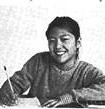Once when I was a teenager, my father and I were standing in line to buy tickets for the circus. Finally, there was only one family between the ticket office an-九年级英语
题文
| Once when I was a teenager, my father and I were standing in line to buy tickets for the circus. Finally, there was only one family between the ticket office and us. This family made a big impression on me. There were eight children, all probably under the age of 12. You could tell they didn’t have a lot of money. Their clothes were not expensive, but they were clean. The children talked excitedly about the clowns. It was clearly a very important day out for them. The father and mother seemed happy as they could be. The tickets lady asked how many tickets the father wanted, he proudly answered, “Please let me buy eight children’s tickets and two adults’ tickets, so I can take my family to the circus.” The ticket lady told him the price. The man’s wife lowered her head. There was no longer a smile on the man’s face. He quietly asked, “How much did you say?” The ticket lady again told him the price. The man obviously didn’t have enough money. But how could he tell his kids the bad news? Seeing what was happening, my dad took a $20 note from his pocket and dropped in on the ground. (We were not rich ourselves at all!) He then tapped the man on the shoulder and said, “Excuse me, sir, you dropped this.” The man understood my father was helping him. He picked up the money, looked straight into my dad’s eyes, and in tears replied. “Thank you. This really means a lot to me and my family.” Although we did not go to the circus that night, we didn’t go without. 小题1:Why does the writer say “Their clothes were not expensive, but they were clean” ( Paragraph 2)?
|
答案
小题1:A 小题2:D 小题3:B 小题4:D 小题5:A |
| 这篇短文中作者主要记述了自己的父亲帮助一家人的故事。这是一个有着八个孩子的家庭,父母带孩子们去看马戏,可是票价太贵。正在这位父亲遭难之际,我的父亲估计丢下20美元,来帮助这一家人。最后这家人如愿以偿的看上了马戏,而我们也因为帮助别人感到很高兴。 小题1:这句话的意思是他们的衣服不昂贵,但是很干净。由此可见父母做的工作很多,故选A,说明这些孩子们被照顾的很好。 小题2:联系下文The man obviously didn’t have enough money. 描述,可知这个男人没有足够的钱,故选D。 小题3:根据Seeing what was happening, my dad took a $20 note from his pocket and dropped in on the ground. 描述,可知这20美元是我父亲的,故选B。 小题4:根据“Thank you. This really means a lot to me and my family.”可知我的父亲帮了这一家一个大忙,故选D。 小题5:通过短文描述,可知这一家人那天晚上看上了马戏,故选A。 |
据专家权威分析,试题“Once when I was a teenager, my father and I were standing in..”主要考查你对 人物传记类阅读,故事类阅读 等考点的理解。关于这些考点的“档案”如下:
人物传记类阅读故事类阅读
考点名称:人物传记类阅读
- 人物传记类阅读:
本类型选材主要是名人轶事。
人物传记的叙述线索也常常以时间为序。内容一般不是一个人的生活流水账,而是选取主人公一些重要的人生阶段或生活片段来展开叙述。
阅读时要把握主人公在此阶段发生的事对他本身或他人有什么重要的意义和影响。
考点名称:故事类阅读
故事类阅读:
文章一般描述的是某一件具体事情的发生发展或结局,有人物、时间、地点和事件。
命题往往从故事的情节、人物或事件的之间的关系、作者的态度及意图、故事前因和后果的推测等方面着手,考查学生对细节的辨认能力以及推理判断能力。
阅读这类材料时,同学们一定要根据主要情节掌握文章主旨大意,同时抓住每一个细节,设身处地根据文章内容揣摩作者的态度和意图,根据情节展开想象,即使是碰到深层理解题也可迎刃而解。- 故事类阅读注意:
初中生接触到的阅读材料大都是故事类。
阅读故事类的材料,应该抓住人物线索、地点线索、时间线索和情节发展线索。
特别注意的是,以上线索往往是并存的。因为情节的发展总是涉及到人物的变化、时间的推移、场景的变换等。
而阅读材料后的阅读理解往往会围绕这些内容设计一些事实类的理解题。
凡事实类的理解题都可以从阅读材料的表层文字中找到答案。
在阅读故事类短文时,应理解文章的深层含义,也就是它的主题。在此需要注意的是,现在的阅读理解题在测试事实类的理解题的同时,往往有一道推理类理解测试题.
- 最新内容
- 相关内容
- 网友推荐
- 图文推荐
上一篇:Lucy Brown teaches English in a junior high school. She loves her students very much, and she works hard. She often tells them some interesting stories in clas-八年级英语
下一篇:One day when Jack was walking inthe park, he saw a woman he knew sitting on a bench(长椅)with a dog beside her. The dog was looking up at the woman. Jack walke-九年级英语
零零教育社区:论坛热帖子
| [家长教育] 孩子为什么会和父母感情疏离? (2019-07-14) |
| [教师分享] 给远方姐姐的一封信 (2018-11-07) |
| [教师分享] 伸缩门 (2018-11-07) |
| [教师分享] 回家乡 (2018-11-07) |
| [教师分享] 是风味也是人间 (2018-11-07) |
| [教师分享] 一句格言的启示 (2018-11-07) |
| [教师分享] 无规矩不成方圆 (2018-11-07) |
| [教师分享] 第十届全国教育名家论坛有感(二) (2018-11-07) |
| [教师分享] 贪玩的小狗 (2018-11-07) |
| [教师分享] 未命名文章 (2018-11-07) |






